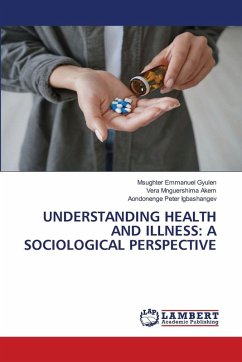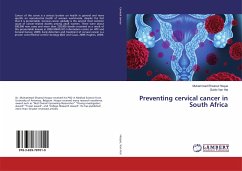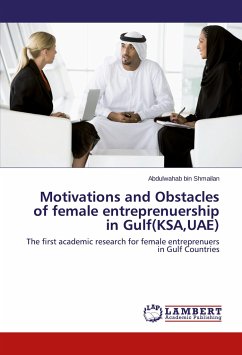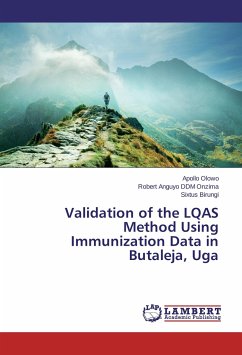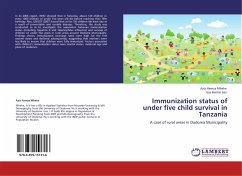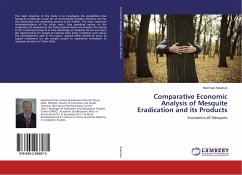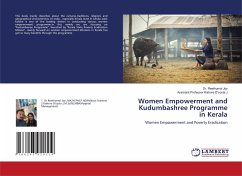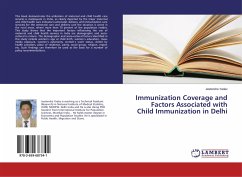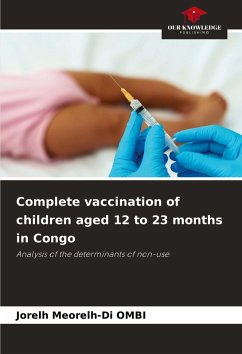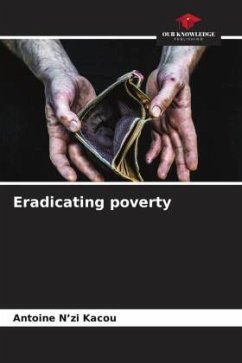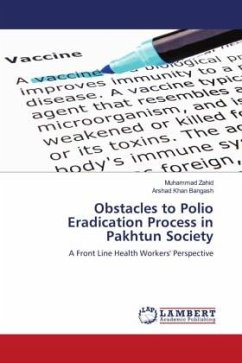
Obstacles to Polio Eradication Process in Pakhtun Society
A Front Line Health Workers' Perspective
Versandkostenfrei!
Versandfertig in 6-10 Tagen
29,99 €
inkl. MwSt.

PAYBACK Punkte
15 °P sammeln!
The study focused on the "Analysis of factors obstructing polio eradication process in Pashtun society". The study aimed to analyze various dimensions of polio eradication with special emphasis on managerial and operational factors, anti-polio and religious controversy, security threats, and parental socioeconomic status. Furthermore, the study attempted to find an association between the aforementioned dimensions and the polio eradication process by using statistical techniques. The study at hand was conducted in Tehsil Katlang. The data was collected from a sample of 200 employees of the Hea...
The study focused on the "Analysis of factors obstructing polio eradication process in Pashtun society". The study aimed to analyze various dimensions of polio eradication with special emphasis on managerial and operational factors, anti-polio and religious controversy, security threats, and parental socioeconomic status. Furthermore, the study attempted to find an association between the aforementioned dimensions and the polio eradication process by using statistical techniques. The study at hand was conducted in Tehsil Katlang. The data was collected from a sample of 200 employees of the Health Department, United Nations Children's Fund (UNICEF), and the World Health Organization (WHO). Respondents were selected by using a proportionate allocation sampling technique. Data were gathered through a questionnaire and a Chi-square test was applied to see the link between independent variables and dependent variable.



